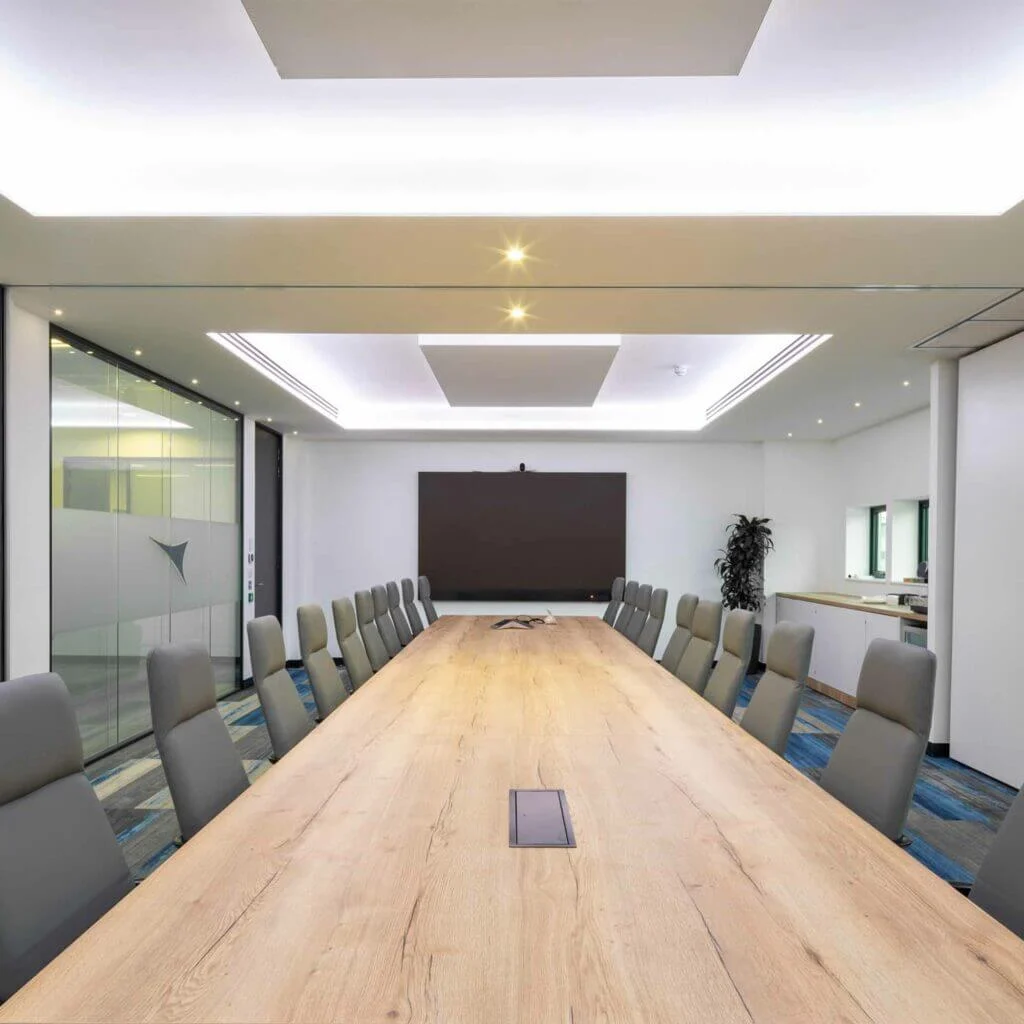QCA PRINCIPLES
Deliver Growth

Establish a strategy and business model which promote long-term value for shareholders
The Group’s purpose is to improve outcomes by providing highly advanced medical technology. Our mission is to pioneer medical technology that improves the outcomes of patients, starting with the first breaths of life. Our strategy is defined clearly in the Our Business Strategy of our Annual report (click here). Our business model is set out clearly in our Annual Report (click here). Our strategy and business model are underpinned by a clear set of values: patient focus, outcome changing, pioneering and research-driven. These reflect our long-term objective of enhancing patient care and delivering business growth and profitability. Our Key Performance Indicators (“KPIs”), which are set out in the Chief Executive Officer’s Review in our Annual Report (click here) measure various growth and profitability metrics, reflecting our business model.
Seek to understand and meet shareholder needs and expectations
Relationships with our shareholders are important to us and we seek to provide effective communications through our Interim and Annual Reports along with Regulatory News Service announcements, including RNS Reach. The Executive Directors meet existing and potential shareholders at regular intervals during the year. The Chief Executive Officer and the Chief Financial Officer make presentations to institutional shareholders and analysts each year, immediately following the release of interim and full year results. They also attend retail shareholder events. The slides used for such presentations are made available on the Group’s website under the Annual Reports section (click here).


The Group’s NOMAD and broker, Liberum Capital Limited, are briefed regularly and update the Board during the year on shareholder sentiment and expectations. as an opportunity to meet, listen, and present to shareholders and their participation is encouraged. All Directors attend the AGM and are available to meet shareholders individually or as a group. This year’s AGM was back to being an open meeting. For each resolution the number of proxy votes received for, against and withheld is circulated to all attendees. All 2022 AGM resolutions were passed. During the year the Executive team hosted a number of institutional investors at our new Croydon site to see the level of investment in our state-of-the-art, environmentally friendly Manufacturing and Technology Centre. The feedback from these visits about the new facility, where our Croydon-based team operate from, was very positive.
Take into account wider stakeholder and social responsibilities and their implications for long-term success
The Board considers that it has operated in full regard of its responsibilities under section 172 of the 2006 Companies Act as outlined in the Strategic Report in our Annual Report (click here). The Group’s Purpose is widely understood and drives the decision-making which aims to optimise the long-term value of the business.
The terms of reference for the Board can be found here.
Employees
Our continued success is built on the talented people who work here, and employee engagement forms a major part of our strategy. Our Senior Independent Director, Bob Beveridge, has the additional responsibility of representing employees’ interests at the Board and has hosted two all Company “question time” meetings, where employees are able to ask questions to the Executive Team. Additionally, our Senior Independent Director visits our sites from time to time to talk to employees across the Group. This allows not only employees to raise any comments informally but also gives the Board general feedback on the wellbeing and mood of employees. He is also the Board level point of contact for the Group’s whistleblowing policy.
Everyone at Inspiration Healthcare Group is a valued member of the team, and our aim is to help every individual achieve their full potential. We are a living wage employer and offer equal opportunities regardless of race, sex, gender identity or reassignment, age, disability, religion or belief, marital status, pregnancy and maternity or sexual orientation. During the year we have extended our flexible working arrangements, including a blended working policy as well as a compressed four-day working week which has been adopted by about a third of our workforce. The health and safety of our workforce is our most important consideration and features as the first item on each board meeting agenda. We have introduced a comprehensive set of processes and measures to keep our people safe. Our new facility in Croydon has a number of initiatives to prevent infections such as Covid-19 spreading throughout the building. At other sites we have protocols in place to prevent spread in different ways, such as changing shift patterns and employees working from home where possible. We hold regular all-employee online meetings to keep employees updated on business progress. We also have a company-wide meeting where we recognise both individual employees and teams within our business who have performed exceptionally well during the year, along with giving everyone a chance to meet colleagues from other areas of the business and build an ‘esprit de corps’. Non-executive Directors are also invited to attend to gain an invaluable insight into the culture of the business. We also operate an incentivised improvement ideas scheme.
Customers
A key element of our business model is to work closely with Key Opinion Leaders in the healthcare system and to develop, evaluate and enhance our propositions in full cooperation with those partners. Our reputation for innovative, outcome-enhancing products and excellent service is key and we regularly seek feedback on the performance of our products. Our Vice President of Clinical, Innovation and Compliance has considerable experience as a neonatal consultant in the NHS and ensures high levels of engagement with the medical community. We also support scientific research where appropriate and attend scientific meetings that both support ongoing clinical research and allow for engagement with customers at various levels from Professors of medicine to junior nursing staff.
Suppliers
Our key strategic suppliers are long-term in nature and work with the Group on product innovations. As a medical technology Company, we regularly assess key supplier performance and engage with them to discuss and agree objectives and to enhance product capability and performance. The appointment of a senior member of staff to manage our supply chain will further develop our relationships with suppliers. 4
Embed effective risk management, considering both opportunities and threats, throughout the organisation
The Board recognises the need for a robust system of internal controls and risk management. The assessment of risks and the development of strategies for dealing with these risks are achieved on an ongoing basis through quarterly updates from the Executive team followed by Board review and challenge. Risk management is integral to the ability of the Group to deliver on its strategic objectives and the Board’s appetite for risk is communicated to shareholders in the Annual Report (click here). The Board review the Risk Register formally every six months and Board reports from the Executives are discussed at Board meetings where ‘ad hoc’ risks are discussed and action undertaken to mitigate them.
The system of internal control is structured around an assessment of the various risks to the business and is designed to address those risks that the Board consider to be material, to safeguard assets against unauthorised use or disposition and to maintain proper accounting records which produce reliable financial and management information. However, any such system of internal control can provide only reasonable, but not absolute, assurance against material misstatement or loss. The Board considers that the internal controls in place are appropriate for the size, complexity and risk profile of the Group. The Board is responsible for reviewing and approving overall Group strategy, approving revenue and capital budgets and plans, and for determining the financial structure of the Group including treasury, tax and dividend policy. Monthly results and variances from plans and forecasts are reported to the Board. The Audit Committee assists the Board in discharging its duties regarding the Financial Statements, accounting policies and the maintenance of proper internal business and operational and financial controls, including liaison with the Group’s external auditors.


The key features of the Group’s system of internal control are as follows:
- An ongoing process of risk assessment to identify, evaluate and manage business risks
- Management structure with clearly defined responsibilities and authority limits
- Authorisation controls and limits built into the Group-wide ERP system, Priority
- A comprehensive system of reporting financial results to the Board
- The Group’s operating companies all maintain Quality Management Systems certified to ISO 13485:2016 for industry regulatory compliance
- A comprehensive system of reporting health and safety performance along with other well-being matters to the Board
- Appraisal and authorisation of major capital expenditure, research & development projects
- Dual signatories on all bank accounts
Management Framework

Maintain the Board as a well-functioning, balanced team led by the chair.
The Board is made of up three Executive Directors and four independent Non-executive Directors, including the Chairman, Roy Davis. Meetings are open and constructive, with every Director participating fully. Meetings take place at our various sites or through ‘virtual’ meetings using platforms such as Microsoft Teams or Zoom. Face-to- face meetings are preferable as they allow the Board to see different operating facilities and meet other employees. The Chairman is responsible for the leadership of the Board and ensuring its effectiveness in all aspects of its role. The Chairman is also responsible for creating the right Board dynamic and for ensuring that all-important matters, in particular strategic decisions, receive adequate time and attention at Board meetings. The Executive Directors are responsible for the day-to-day running of the business and developing corporate strategy, while the Non-executive Directors are tasked with constructively challenging the decisions of Executive management and satisfying themselves that the systems of business risk management and internal financial controls are robust. The Non-executive Directors give informal advice to the Executives between meetings and devote sufficient time to be effective in this regard. The Board meets regularly during the year as planned, as well as ad-hoc meetings relating to such matters that arise from time to time; a calendar of meetings and principal matters to be discussed is agreed at the beginning of each year. Board papers are circulated the week before meetings, allowing time for full consideration and necessary clarifications before the meetings. Board reports from the Executive team are also circulated to the Board in months when there is no formal Board meeting to ensure continuity and transparency in activity in the business. Board dinners are held from time to time to allow broader discussion and development of effective Board relations in an informal environment. The Group has effective procedures in place to monitor and deal with conflicts of interest. The Board is aware of the other commitments and interests of its Directors. Changes to these commitments and interests are reported to and, where appropriate, agreed with the rest of the Board. The Board has appointed an outsourced Company Secretary from March 2023. The Company Secretary is responsible for ensuring that Board procedures are followed and that the Group complies with all applicable rules, regulations and obligations governing its operation. If required, the Directors are entitled to take independent legal advice and, if the Board is informed in advance, the cost of such advice will be reimbursed by the Group.
Ensure that between them the Directors have the necessary up-to-date experience, skills and capabilities.
The Directors have both a breadth and depth of skills and experience to fulfil their roles. All have experience of being on other Boards of companies listed on the London Stock Exchange. Details of the Directors’ experience and areas of expertise are outlined in the Board of Directors section on this website (click here). The Board undertakes an appraisal process to see how the mix of skills, experience and behaviours align with the Company’s ambitions from time to time. Skills and experience required are also discussed at the Nominations Committee as part of succession planning. Currently, the Board is satisfied that, between the Directors, it has an effective and appropriate balance of skills and experience, needed at this stage of the Group’s development, including in the areas of medical devices, sales and marketing, external communications, product development, finance, innovation, international trading, risk management, corporate governance, and M&A. The Audit Committee Chair updates his technical and financial experience by attending workshops held by the major accounting firms. The Chair of the Remuneration Committee obtains regular updates on best practice for executive remuneration packages and initiates periodic reviews, taking account of changes to the business. Other Directors are regularly kept up-to-date via the latest governance and business updates from major accountancy or legal firms and via membership of various professional bodies. All Directors stand for re-election by shareholders each year. The Board identified a need to strengthen Company Secretarial activity and, as such, has appointed an outsourced Company Secretary from March 2023. The Company Secretary is responsible for ensuring that Board procedures are followed and that the Group complies with all applicable rules, regulations and obligations governing its operation. If required, the Directors are entitled to take independent legal advice and, if the Board is informed in advance, the cost of such advice will be reimbursed by the Group..


Evaluate Board performance based on clear and relevant objectives, seeking continuous improvement
A calendar of meetings and principal matters to be discussed, is agreed at the start of the year. The Board held nine scheduled meetings in FY2023; two meetings focused on strategic matters and the remaining seven meetings focused on specific key matters, including risk management, health and safety, sustainability, environmental, R&D reviews, financial forecasts, employee engagement, and shareholder feedback. Following changes made after the SLE acquisition, the Board intends to use an externally facilitated evaluation process during FY2024. The Board considers succession planning for both Executive and Non-executive Directors on an ad-hoc basis.
Promote a corporate culture that is based on ethical values and behaviours
The Group’s culture is understood and led by the example set by the behaviours of the three Executive Directors, one of whom was the founder of Inspiration Healthcare Limited. Taking into account that the Group is relatively small with approximately 200 employees, this is considered an effective means of conveying the Group’s approach to ethical behaviour. The common culture is based upon four core values:

Outcome Changing

Research Driven

Pioneering

Patient Focused
Our new Manufacturing and Technology Centre in Croydon has helped improve cohesion within the Group, with colleagues from all Group companies working across all functions including R&D, Marketing, Sales and Finance. We announced the closure of our Crawley facility, which has led to the relocation of employees to our Croydon and Hailsham facilities, as well as giving those affected more time to work from home, concentrating resources in fewer sites. We are more proactively bringing our field-based employees together for regular face-to-face meetings. These initiatives, along with further integration of processes across the Group, will develop a stronger ‘esprit de corps’ within the Group.

Maintain governance structures and processes that are fit for purpose and support good decision-making by the Board
The Board reviews our corporate governance arrangements regularly and expects to evolve these over time as the business grows. There is a clear division of responsibilities between the Chairman and the Chief Executive Officer. The Chairman is responsible for leading the Board, setting its agenda and monitoring its effectiveness. He meets regularly and separately with the Chief Executive Officer and the other Nonexecutive Directors. The Board has recently reviewed the schedule of matters reserved for its decision and a full copy is published on this website (click here).
Matters reserved for Board decision include:
- Overall business strategy including Environmental, Social and Governance
- Review of key operational and commercial matters including health and safety
- Review of significant risks, risk appetite, and controls following report on effectiveness of controls from the Audit Committee
- Review of key financial matters, including approval of financial plans and changes to capital structure
- Acquisitions and disposals of businesses, material capital expenditure, treasury policy, and dividends
- Governance, including the appointment and removal of Board members, remuneration of Directors, set-up and delegation of matters to committees and the reviewing of reporting back thereof
- Approval of Financial Statements
Stock exchange-related issues, including the approval of key communications All Directors receive monthly information on the Group’s operational and financial performance and a full set of papers are circulated to the Board in advance of meetings. The Board delegates authority to three committees to assist in meeting its business objectives while ensuring a sound system of internal control and risk management. The committees meet independently of Board meetings.

Audit Committee
The Audit Committee has two members, Bob Beveridge (Chair) and Liz Shanahan. The Chief Financial Officer and external auditors attend meetings by invitation. The Audit Committee’s responsibilities include the review of the scope, results and effectiveness of the external audit, the review of half-year and Annual Financial Statements, and the review of the Group’s risk management and internal control systems. A separate report of the Audit Committee activities is in our Annual Report (click here). The terms of reference for the Audit Committee can be found here.
Remuneration Committee
The report of the Remuneration Committee is set out in our Annual Report (click here) The Remuneration Committee has two members, Liz Shanahan (Chair) and Bob Beveridge. The Company Secretary attends by invitation and, where appropriate, leaves the meeting should there be a conflict of interest. The Committee is responsible for setting the remuneration arrangements, including short-term bonus and long-term incentives, for Executive Directors, as well as approving the remuneration principles for senior employees. The detailed terms of reference for the Remuneration Committee can be found here.
Nominations Committee
The Nominations Committee has four members, Mark Abrahams (Chair), Bob Beveridge, Liz Shanahan and Neil Campbell. The Nominations Committee considers succession planning, reviews the structure, size, skills and experience as well as composition of the Board, and nominates candidates to fill Board vacancies. The detailed terms of reference for the Nominations Committee can be found here.
BUILD TRUST
Communicate how the Company is governed and is performing by maintaining a dialogue with shareholders and other relevant shareholders.

The Board has formal responsibilities and agendas and three sub-committees. Additionally, strong informal relations are maintained between Executive and Non-executive Directors. During the last year most meetings have taken place face-to-face and Non-executive Directors have continued to meet with other senior managers informally to give advice and assistance. One board dinner has been held during the year to provide opportunities for broader discussions. The Chief Executive Officer and Chief Financial Officer meet with investors after results announcements have been made and at other shareholder participant events. They also meet regularly with the Group’s Nomad/broker to discuss any shareholder feedback – the Board is briefed accordingly. The Chief Executive Officer and the Chief Financial Officer make presentations to institutional shareholders and analysts each year, immediately following the release of interim and full-year results. They also attend retail shareholder events, both in person and online. The slides used for such presentations are made available on this website (click here) and recording of presentations from retail investor meetings are generally made available on the platform of the organisers. The Group retains a financial public relations firm to assist it in ensuring that key messages reach the appropriate audiences.

Principal Risks and Uncertainties
Please click here to see the full Principal Risks and Uncertainties faced by the Group.

Country of Incorporation
The Company (Company number 03587944) was incorporated on 25 June 1998 in England and Wales. Following a reverse takeover by Inspiration Healthcare Limited, completed on 24 June 2015, the Company changed its name to Inspiration Healthcare Group plc and was re-admitted to the London Stock Exchange’s Alternative Investment Market (LSE:IHC). The Company has adopted the QCA Corporate Governance Code, which was last reviewed by the Board in January 2024.

Main Country of Operations
Inspiration Healthcare Group plc’s main country of operation is the United Kingdom, although some of our staff may be domiciled overseas to provide more localised service and support.

Other Exchanges
Inspiration Healthcare Group plc is traded on the London Stock Exchange AIM market and no securities are listed on any other Exchanges.
